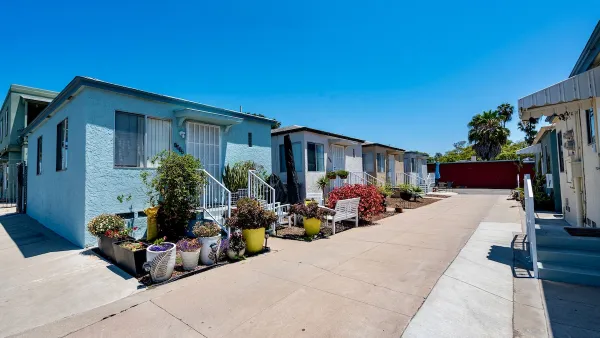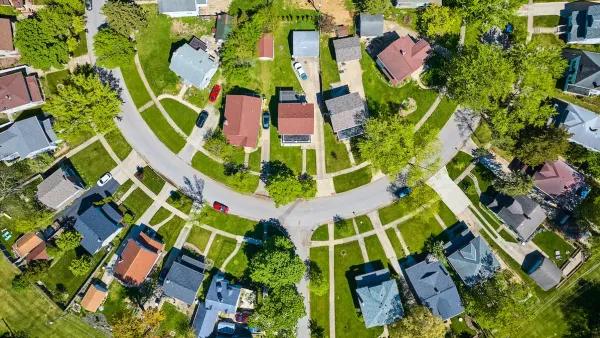Paul Krugman writes that we need to stop conflating owing a home with citizenship.
"[H]ere's a question rarely asked, at least in Washington: Why should ever-increasing homeownership be a policy goal? How many people should own homes, anyway?
Listening to politicians, you'd think that every family should own its home - in fact, that you're not a real American unless you're a homeowner. 'If you own something,' Mr. Bush once declared, 'you have a vital stake in the future of our country.' Presumably, then, citizens who live in rented housing, and therefore lack that 'vital stake,' can't be properly patriotic. Bring back property qualifications for voting!
And the belief that you're nothing if you don't own a home is reflected in U.S. policy. Because the I.R.S. lets you deduct mortgage interest from your taxable income but doesn't let you deduct rent, the federal tax system provides an enormous subsidy to owner-occupied housing. On top of that, government-sponsored enterprises - Fannie Mae, Freddie Mac and the Federal Home Loan Banks - provide cheap financing for home buyers; investors who want to provide rental housing are on their own.
In effect, U.S. policy is based on the premise that everyone should be a homeowner. But here's the thing: There are some real disadvantages to homeownership. [L]et's try to open our minds to the possibility that those who choose to rent rather than buy can still share in the American dream - and still have a stake in the nation's future."
FULL STORY: Home Not-So-Sweet Home

Planetizen Federal Action Tracker
A weekly monitor of how Trump’s orders and actions are impacting planners and planning in America.

Maui's Vacation Rental Debate Turns Ugly
Verbal attacks, misinformation campaigns and fistfights plague a high-stakes debate to convert thousands of vacation rentals into long-term housing.

Restaurant Patios Were a Pandemic Win — Why Were They so Hard to Keep?
Social distancing requirements and changes in travel patterns prompted cities to pilot new uses for street and sidewalk space. Then it got complicated.

In California Battle of Housing vs. Environment, Housing Just Won
A new state law significantly limits the power of CEQA, an environmental review law that served as a powerful tool for blocking new development.

Boulder Eliminates Parking Minimums Citywide
Officials estimate the cost of building a single underground parking space at up to $100,000.

Orange County, Florida Adopts Largest US “Sprawl Repair” Code
The ‘Orange Code’ seeks to rectify decades of sprawl-inducing, car-oriented development.
Urban Design for Planners 1: Software Tools
This six-course series explores essential urban design concepts using open source software and equips planners with the tools they need to participate fully in the urban design process.
Planning for Universal Design
Learn the tools for implementing Universal Design in planning regulations.
Heyer Gruel & Associates PA
JM Goldson LLC
Custer County Colorado
City of Camden Redevelopment Agency
City of Astoria
Transportation Research & Education Center (TREC) at Portland State University
Jefferson Parish Government
Camden Redevelopment Agency
City of Claremont





























